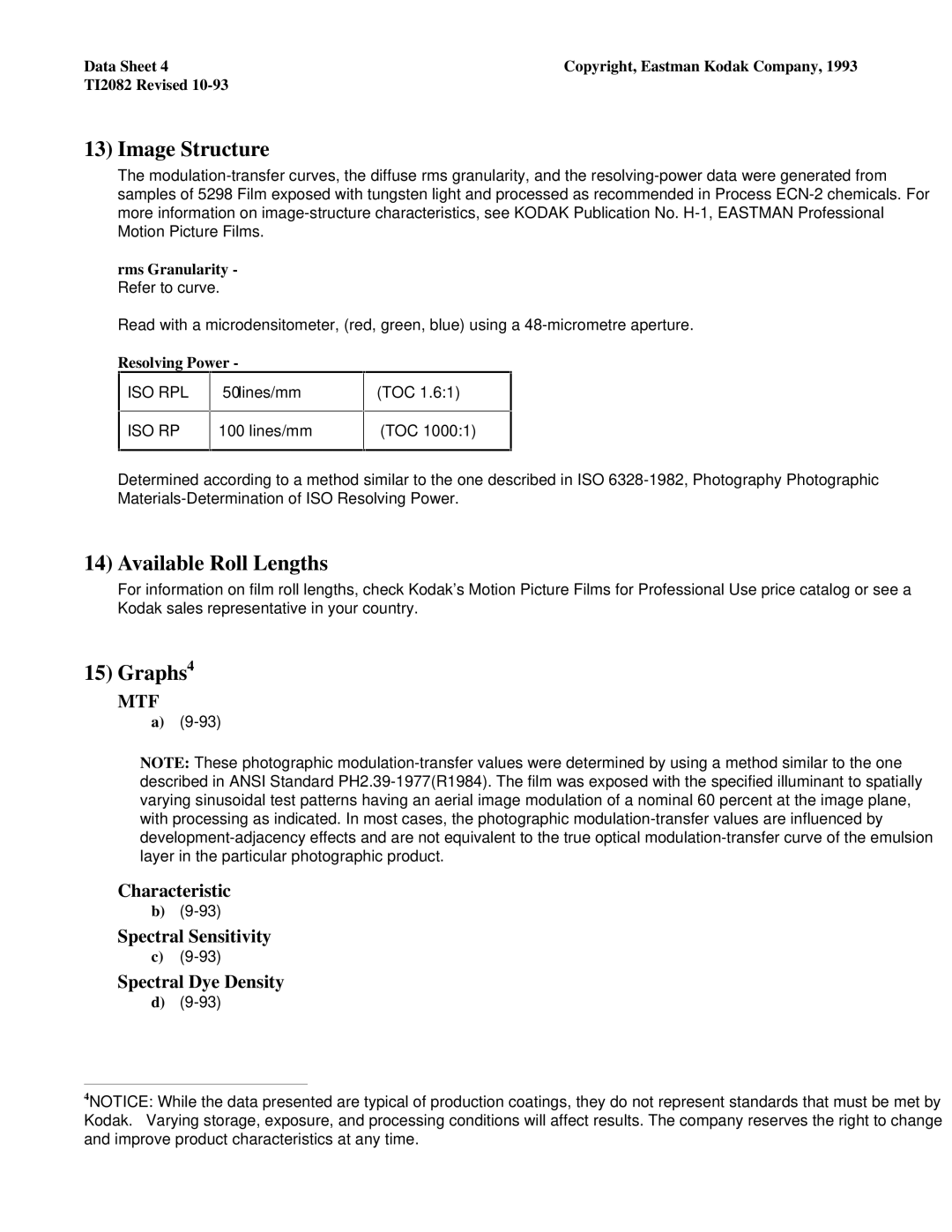Data Sheet—4 | Copyright, Eastman Kodak Company, 1993 |
TI2082 Revised 10-93 | |
13) Image Structure
The modulation-transfer curves, the diffuse rms granularity, and the resolving-power data were generated from samples of 5298 Film exposed with tungsten light and processed as recommended in Process ECN-2 chemicals. For more information on image-structure characteristics, see KODAK Publication No. H-1, EASTMAN Professional Motion Picture Films.
rms Granularity - Refer to curve.
Read with a microdensitometer, (red, green, blue) using a 48-micrometre aperture.
Determined according to a method similar to the one described in ISO 6328-1982, Photography—Photographic Materials-Determination of ISO Resolving Power.
14) Available Roll Lengths
For information on film roll lengths, check Kodak's Motion Picture Films for Professional Use price catalog or see a Kodak sales representative in your country.
15) Graphs4
MTF
a)(9-93)
NOTE: These photographic modulation-transfer values were determined by using a method similar to the one described in ANSI Standard PH2.39-1977(R1984). The film was exposed with the specified illuminant to spatially varying sinusoidal test patterns having an aerial image modulation of a nominal 60 percent at the image plane, with processing as indicated. In most cases, the photographic modulation-transfer values are influenced by development-adjacency effects and are not equivalent to the true optical modulation-transfer curve of the emulsion layer in the particular photographic product.
Characteristic
b)(9-93)
Spectral Sensitivity
c)(9-93)
Spectral Dye Density
d)(9-93)
4NOTICE: While the data presented are typical of production coatings, they do not represent standards that must be met by Kodak. Varying storage, exposure, and processing conditions will affect results. The company reserves the right to change and improve product characteristics at any time.

